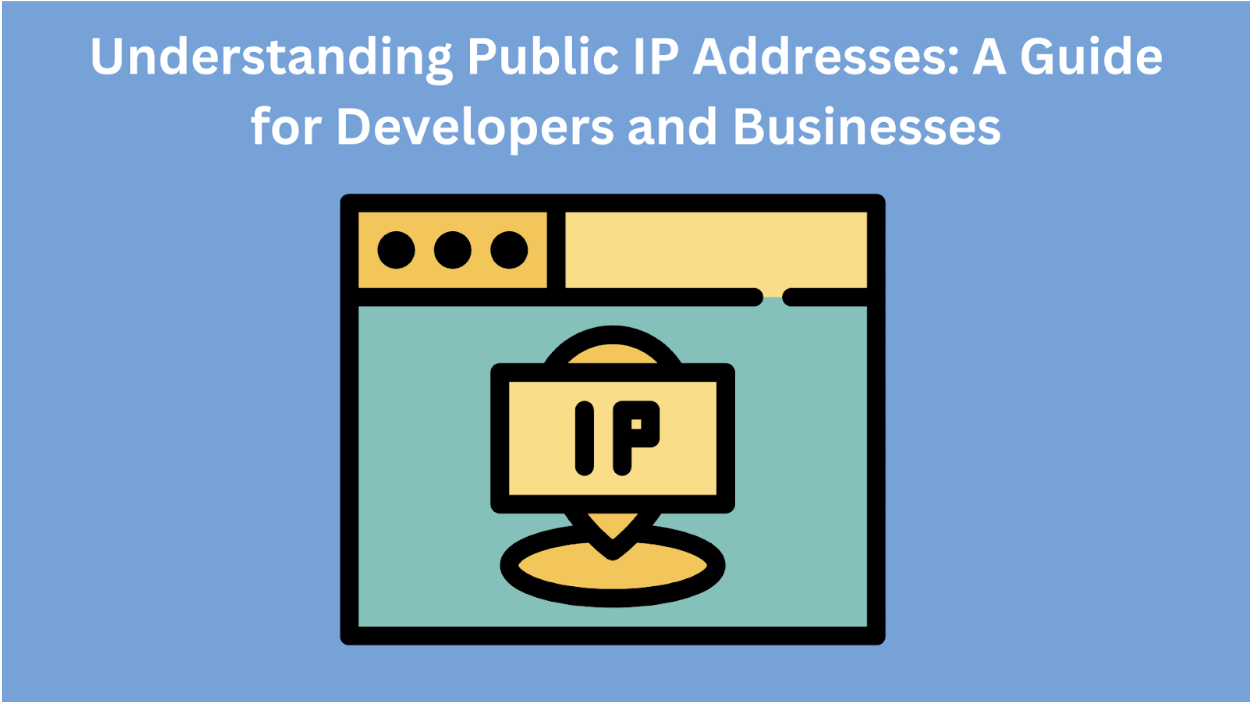In the digital age, where connectivity reigns supreme, understanding the concept of IP addresses is crucial for developers and businesses alike. Among the various types of IP addresses, public IP addresses play a pivotal role in facilitating communication over the internet. This comprehensive guide delves into what public IP addresses are, their significance, and how they impact developers and businesses.
What is a Public IP Address?
A public IP address is a unique numerical label assigned to devices connected to a network, enabling them to communicate with other devices across the internet. Unlike private IP addresses, which are used within local networks, public IP addresses are globally routable and accessible from any part of the internet.
The Significance of Public IP Addresses
Public IP addresses serve as the digital identity of devices on the internet. They enable seamless communication between servers, computers, and other connected devices across the globe.
For businesses, public IP addresses are essential for hosting websites, running servers, and establishing remote connections with clients and partners.
How Public IP Addresses Impact Developers?
Developers rely on public IP addresses for various purposes, including deploying applications, hosting web services, and configuring network infrastructure. Understanding public IP addressing is fundamental for building robust and scalable systems that can handle the demands of modern-day internet traffic.
Businesses and Public IP Addresses
For businesses, having a dedicated public IP address is crucial for maintaining online visibility, ensuring reliable access to services, and safeguarding against cyber threats. Whether it’s hosting e-commerce platforms, running cloud-based applications, or facilitating remote work environments, public IP addresses underpin numerous aspects of business operations.
Conclusion
Public IP addresses are crucial in enabling global connectivity for developers and businesses alike. By understanding the significance of public IP addressing and implementing best practices for their utilization and security, organizations can harness the power of the internet to drive innovation and growth in today’s digital landscape.
FAQs
1. Can I Change My Public IP Address?
Yes, public IP addresses can be dynamic or static. Dynamic IPs may change periodically, while static IPs remain constant. Depending on your internet service provider (ISP) or network configuration, you may have the option to request a static IP address.
2. Are Public IP Addresses Secure?
While public IP addresses themselves are not inherently secure, implementing robust network security measures, such as firewalls, intrusion detection systems, and encryption protocols, can mitigate security risks associated with public-facing systems.
3. What’s the Difference Between IPv4 and IPv6 Public IP Addresses?
IPv4 addresses are 32-bit numerical labels, while IPv6 addresses are 128-bit hexadecimal labels. IPv6 addresses were introduced to address the depletion of available IPv4 addresses and offer enhanced scalability and security features.
4. Can I Use Public IP Addresses for Internal Network Communication?
While public IP addresses are primarily used for external communication over the internet, it’s not advisable to use them for internal network communication due to security and routing concerns. Instead, private IP addresses are used within local networks.
5. How Can I Determine My Public IP Address?
You can determine your public IP address by using online services, network diagnostic tools, or checking your router’s settings. Additionally, websites like “WhatIsMyIP.com” provide real-time information about your public IP address.

